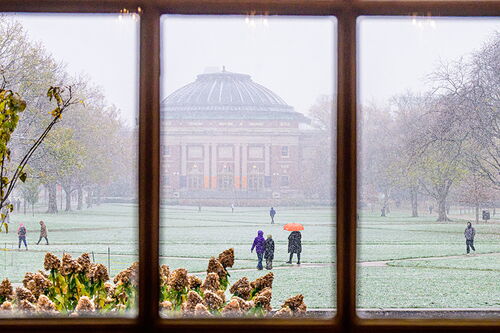The science of intelligence

Please explain what you’re researching.
A powerful insight for understanding human intelligence derives from the brain’s most unique and essential characteristic: plasticity. The brain demonstrates a remarkable capacity to reconfigure itself – to continually update prior knowledge on the basis of new information and to actively generate internal predictions that guide adaptive behavior and decision making.
Contemporary research and theory conceive of the brain as a dynamic and active inference generator that anticipates incoming sensory inputs, forming hypotheses about the world that can be tested against sensory signals that arrive in the brain. Plasticity is therefore critical for the emergence of human intelligence – providing a powerful mechanism for updating prior beliefs, generating dynamic predictions about the world, and adapting in response to ongoing changes in the environment. Recent clinical evidence further indicates that plasticity is a hallmark of the brain’s response to traumatic injury and neurological disease, promoting the formation of new neurons, connections, and blood supply pathways that enable the brain to adaptively reorganize neural circuits and providing a remarkable opportunity for functional recovery.

Through scientific discovery and technological innovation, our research group at the Beckman Institute provides a catalyst for basic and translational research that aims to measure, model, and elicit brain plasticity. It promotes multidisciplinary studies of the neurobiological foundations of brain plasticity and innovative approaches and technologies to drive neural plasticity through the application of adaptive cognitive training, non-invasive brain stimulation (high-definition transcranial direct-current stimulation), physical fitness training, mindfulness meditation, and nutritional intervention (the design of nutraceuticals to promote healthy brain aging). We conduct clinical trials in healthy and clinical populations that investigate science and technology that aims to enhance performance and mitigate the effects of cognitive aging and traumatic brain injury.
What impact are you having?
Our aim is to conduct research that has broad, transformative impact – guiding public policy recommendations about the nature of human intelligence in education, business, artificial intelligence, and medicine.
How has your field changed since your career began?
We have increasingly realized that human intelligence reflects individual differences in the system-wide topology and dynamics of the human brain. Rather than originating from a specific brain region or network, accumulating evidence suggests that brain network dynamics are critical for the diverse range of mental abilities underlying general intelligence.
What’s your proudest or most significant achievement?
We have developed a new approach to understanding the nature and mechanisms of human intelligence, the Network Neuroscience Theory. According to this framework, general intelligence emerges from the small-world topology of brain networks and the dynamic reorganization of its community structure in the service of system-wide flexibility and adaptation. (For further detail, click here.)
Editor’s note: For more on Barbey’s research, see www.decisionneurosciencelab.org.
This LAS Experts profile is part of a series to highlight the groundbreaking work by faculty in the College of LAS. Visit here for other profiles.








